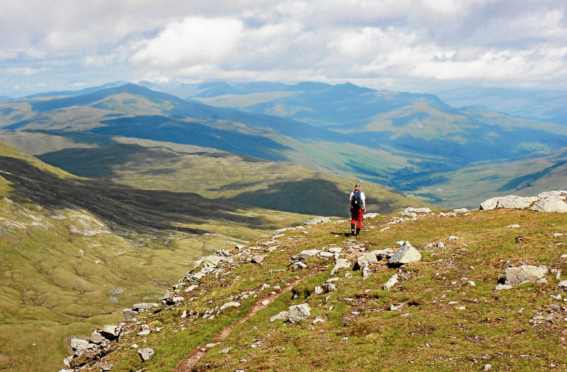Evidence of major climate change has been found in Perthshire’s mountains by students from Aberdeen University.
The research team studied six summits and their alpine plant life to investigate how they are being changed by global warming.
They followed in the footsteps of celebrated field botanist Peter Ewing, who carried of surveys of the same mountain areas a century ago.
And Dr Sarah Woodline from the university’s School of Biological Sciences said the changes found by the team indicated “clear evidence of environmental destabilisation”.
“Our findings emphasise the need for urgent action in dealing with climate change,” she said.
Francesca Jaroszynska, who was studying at the University at the time of the project, found that plant life on the mountain summits had changed significantly over the past 100 years.
Many of the alpine species that were previously recorded are still present but there was a significant upward shift in “generalist” species such as grasses.
Where once they only grew lower down on mountains, where conditions are less harsh, they are now being found on peaks and could in time replace specialist alpine species such as herbs and dwarf shrubs.
Francesca, now studying for her PhD at the University of Bergen, said: “This European-wide project has made very exciting and revealing inroads into our understanding of the response of alpine plants to climate change.
“Revisiting mountains that were walked and loved by Ewing one hundred years earlier was like travelling back in time.
“We found that while the mountain summits may still be there, what grows and lives on them is very transient and vulnerable to climate change.
“The approach of combining history and ecology to tackle one of the most pressing questions in ecology today is unique and it is gratifying that Scotland and Aberdeen University has been able to contribute.
The Aberdeen University findings have been fed into an international study combining the results of a number of experts and research teams and data from 300 mountain summits across Europe.
It shows an overall trend of accelerating climate change and change in mountain summit vegetation.
The Perthshire mountains studied were Creag Mhor, Ben Lui, Meall nan Tarmachan, Beinn Heasganish, Ben More and Ben Lawers.










